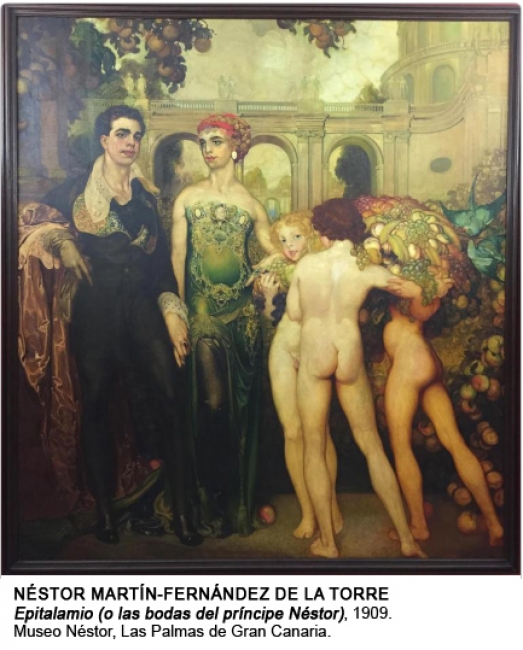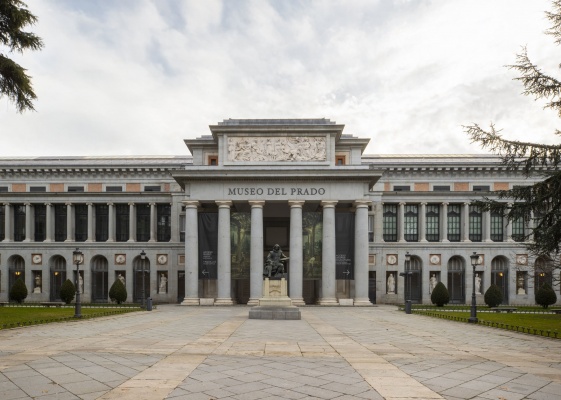Descripción de la Exposición
Queer encounters are always coded and their signifying languages have long been familiar as initiating the intimate within sexually dissident communities. These codes have played a key role in resisting heteronormative sexual regulation, instigating a solidarity within and beyond homoerotic encounters.
The exhibition makes these coded encounters visible through a fluid subjectivity that recognises intersectional negotiations of power bound to gender and sexuality. Taking as a starting point the subversion of clear gender distinctions, a more expanded notion of sexuality is explored performatively. Between fiction and documentary, the appropriation of cinematic languages and techniques connect the works presented. However, the heteronormative erotic codes of scopophilic voyeurism observed in mainstream cinema are subverted through using strategies of disruption such as queer staging, re-directing and re-enactment.
The curatorial process developed through a series of recent encounters between the presented artists and the curator/artist, Jaime Welsh. Particular friendships and affinities were established through encounters that took place within North East London’s raves, Tinder dates, degree show visits, or in Sepuya’s case through reading ArtForum. As opposed to directing the show as an auteur, Welsh aimed to explore an expanded notion of curation as a device that was rooted in embodied experience, collaboration and exchange. The proposed exhibition was frequently discussed with many of the selected artists particularly with Abri de Swardt, who became extremely supportive of the project. As the curation developed to become a network of encounters, the aim was to promote dialogue between the selected artists in order to articulate committed voices that could offer a sense of representation.
In Streams, Abri de Swardt stages encounters of photographic materials that circulate within ever-expanding networks mediated by differentiated technologies of queer visibility. These images within images respond to each other in gasps, sharing and reflecting queer communities based on desire and estrangement. Through relocating the darkroom into a riverbank, the precarious yet effervescent qualities of queer lives are addressed in relation to water as natural and photography as a neutral phenomena. In this context of access and distribution, Sepuya’s Model Study is hung ‘bedroom style’, confronting the viewers with a charged gaze. He uses the functionality of the studio as a staging ground to explore queer space and desire through enacting encounters with friends or mirrors.
In Sp1ra, Kevin Brennan explores his personal relationship with virtual reality through constructing space within landscape and cinema, re-enacting the endless worlds presented in video game environments. Integrated into this are fragments of an epic fable following a triangle of youths caught between worlds. Through dismantling and deriding heteronormative ideas of masculinity embedded in the history of the ‘West’ and its associated media, Brennan creates new worlds of collective liberation and transcendence. Sp1ra poses questions about the impact of virtual realities within contemporary society, and how they reshape embodied interaction between our sense of self and the Other.
The drawings of Hannah Quilan and Rosie Hastings were developed in response to their encounter with Blackpool: ‘a British seaside town with a rich LGBTQ history in a state of decline’. Their drawing series use storytelling techniques that are embedded within the cinematic editing and ordering of film events in ways that are similar to Welsh’s still scenarios. An encounter outside a local gay bar highlights the functionality of these shared social spaces as platforms for queer exchange. Questioning the existence of safe areas of queer sociability within the contested social spaces of gay bars in the UK, is a core concern within the collaborative practice of Rosie and Hannah. There is a necessity to make visible the excitement of queer relations, including non-binary, trans and all gender bodies and sexualities. In Welsh’s mise-en-scenes, our understanding of public space is also questioned through the artist’s investigation into the highly structured social behaviours that arise within the cottaging activities of resistant queer communities, now re-located to the controlled spaces of private property. Through appropriating cinematic languages from Pasolini’s Theorem, Visconti’s Conversation Piece and Cocteau’s Orphée, Welsh has developed scenarios using acting techniques such as improvisation, gesture, flashbacks and flash-forwards.
David Lieske, in Direction Artiste, re-photographs covers of 1960’s-80’s Films and Filming magazines. On the front covers of these ‘forgotten’ publications, stills from ‘often straight’ films have been carefully isolated, allowing a new queer re-interpretation of their original context to emerge. In this subversive act of postproduction, one of the covers depicts an encounter between two Star Wars characters, expanding our notion of queerness into the non-human domain. A caption within this cover can be read: ‘see inside: rebel without the cause’. As the inside content of the magazine has been cut, the caption now re-directs the viewers to the inside of the room located next to the work. Here we find a video by Cabello/Carceller in which a key scene of the film is re-enacted by sixteen women, in an open call to perform masculine behaviour from their alternative perspectives. “Using an array of personal resources, the performers give some interesting clues about the construction of one of the most penetrating and influential models of masculine behaviour in our current society” (Cabello/Carceller 2017).
Taboo and transgression are recurrent concerns within these artists’ practices, which evoke the complexity of queer eroticism and the fluidity of masculine and feminine identifications that are never fixed or reduced to the body alone. Youth and desire are frequently used as subjects that generate elusive tensions between subject and image, gender and sexuality. Through making visible our questioning of heteronormative power relations, it is our wish to nurture and continually cultivate our shared power as a queer community. In “Friendship as a way of life”, Foucault examined the paradigm of intense social relations made possible through queerness as shared estrangement. These bonds can then produce a new ethics and a shift in cultures, broadening the scope of social norms as an on-going political project. Engaging in new networks, alliances and kinships, Coded Encounters aims to celebrate our potentiality as queer practitioners.
Jaime Welsh

Premio. 01 abr de 2025 - 18 may de 2025 / Bilbao, Vizcaya, España

Exposición. 14 may de 2025 - 08 sep de 2025 / Museo Nacional Centro de Arte Reina Sofía (MNCARS) / Madrid, España

Formación. 30 oct de 2025 - 11 jun de 2026 / Museo Nacional del Prado / Madrid, España